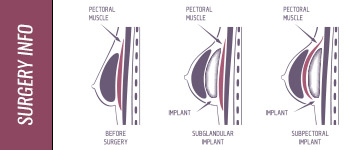We’ve all heard the term ‘senior moments’ used to describe periods of forgetfulness brought on by the aging process. While we don’t entirely understand what processes are involved in the slowdown of mental processes with age, the effects are undeniable. As we age, our thought processes slow, and it may be more difficult to learn new subjects than it was when we were younger.
These symptoms make up the syndrome referred to as dementia, a chronic and progressive syndrome in which higher cortical function is gradually degraded.
Fortunately, not all symptoms of age-related dementia result in Alzheimer’s disease or other serious conditions, and many patients have had success addressing their early symptoms of cognitive decline.
According to the World Health Organization, the mental functions impaired by age-related dementia include:
- Memory
- Thinking
- Orientation
- Comprehension
- Calculation
- Learning capacity
- Language
- Judgment
As these abilities become impaired, many people find their abilities to live independently and to adapt to their changing environment are diminished.
While the aging process cannot be completely halted or reversed, many treatments are available that may help patients retain and even recover some of their cognitive abilities as they age.
CAUSES OF AGE-RELATED COGNITIVE DISORDERS
Modern medicine has made some great strides in developing treatments to slow the progression of age-related dementia and other cognitive disorders.
The first step in choosing a treatment plan is to establish the underlying cause of the problem. While many cognitive disorders are normal aging progression, these problems always have some underlying cause, whether it’s simple physical degeneration, trauma, illness, or problems associated with diet, exercise, and other lifestyle factors, it is important to establish the root of the problem in order to most effectively address the symptoms.
AVAILABLE TREATMENTS
Once the general causes of progressive dementia or other age-related cognitive disorders are established, it will be easier to plan an effective course of treatment.
Many cases of dementia can be effectively treated by addressing the underlying cause of the problems. For example, patients with hormonal, nutritional, or other issues may see their cognitive problems slowed or even reversed through proper diet, exercise, drug therapies, and lifestyle changes.
Medical researchers are also working on new therapies to address age-related cognitive problems, including:
- Human growth hormone therapy, designed to retard the overall aging process.
- Behavioral therapies, from performing specific mental exercises to simply pursuing new hobbies and interests to keep the brain active.
- Other drug therapies, including aspirin, estrogen, selegiline, and vitamin E, are currently being evaluated for their effectiveness.
An ideal anti-aging plan addresses the issues holistically, rather than as discrete symptoms. The aging process is physical, and cosmetic, and the most effective aging treatments recognize that these issues are often related. The ultimate goal of any overall anti-aging treatment is not to deny the aging process, but to ensure that the patient is as happy, healthy, and confident as possible.
To learn more about anti-aging treatments, and to design your own customized anti-aging regimen, contact an anti-aging doctor in your area for a consultation.




